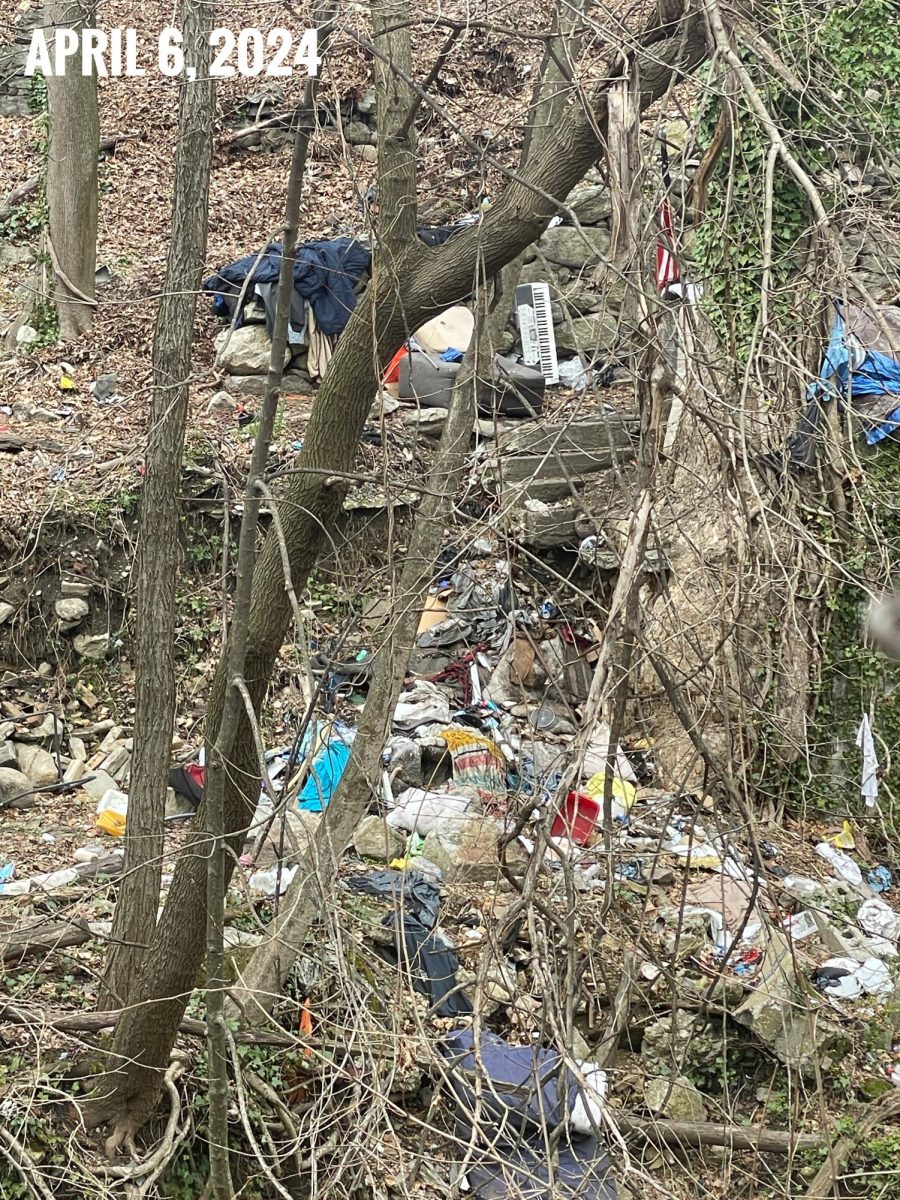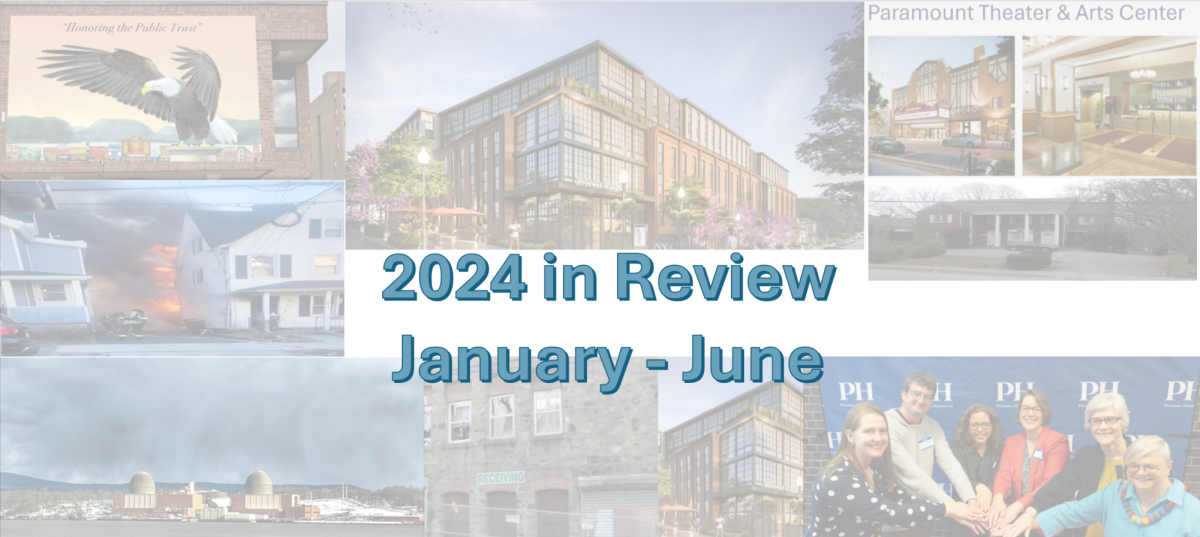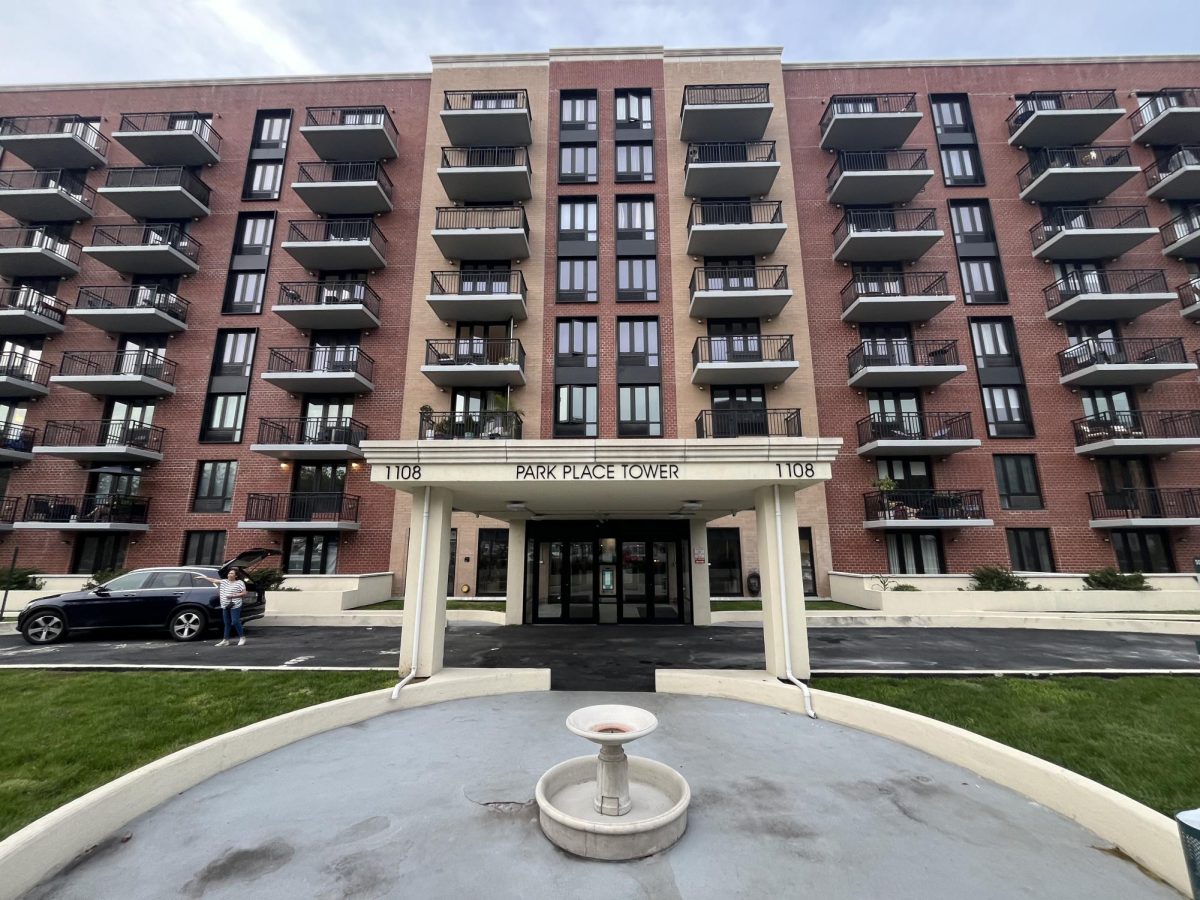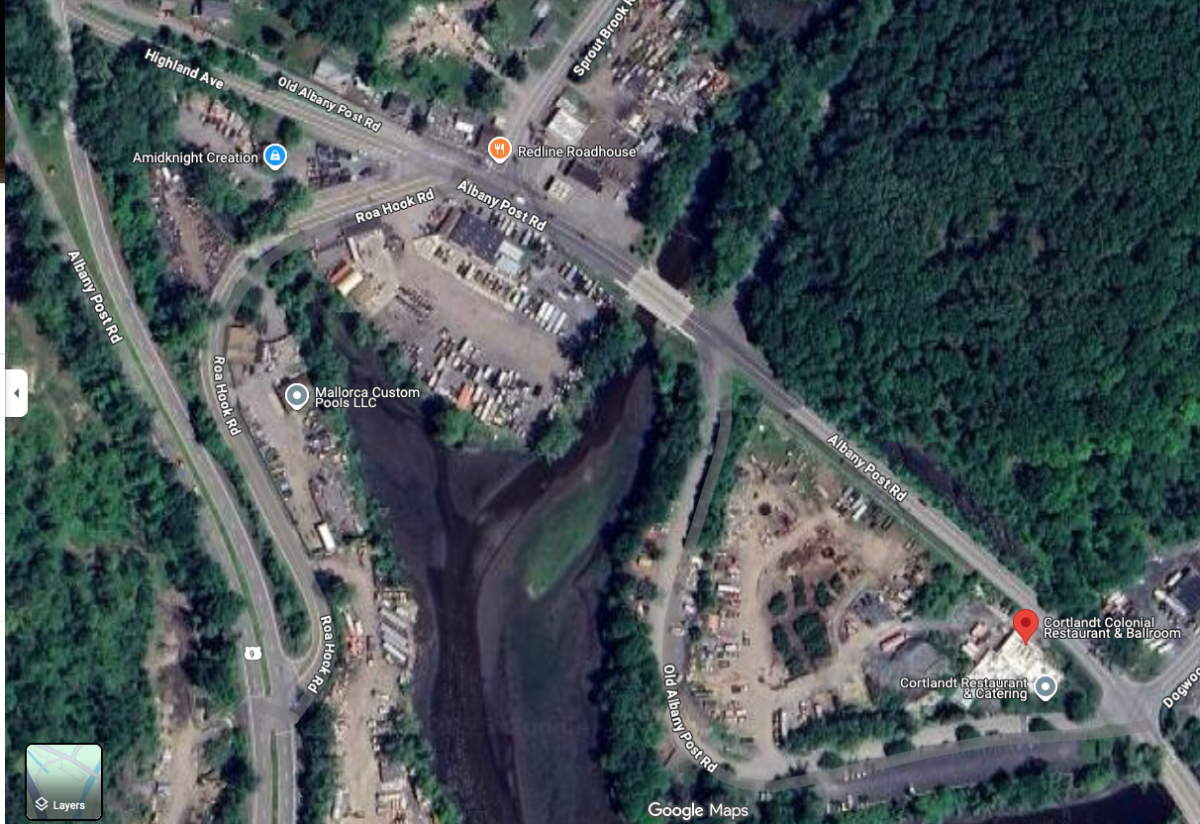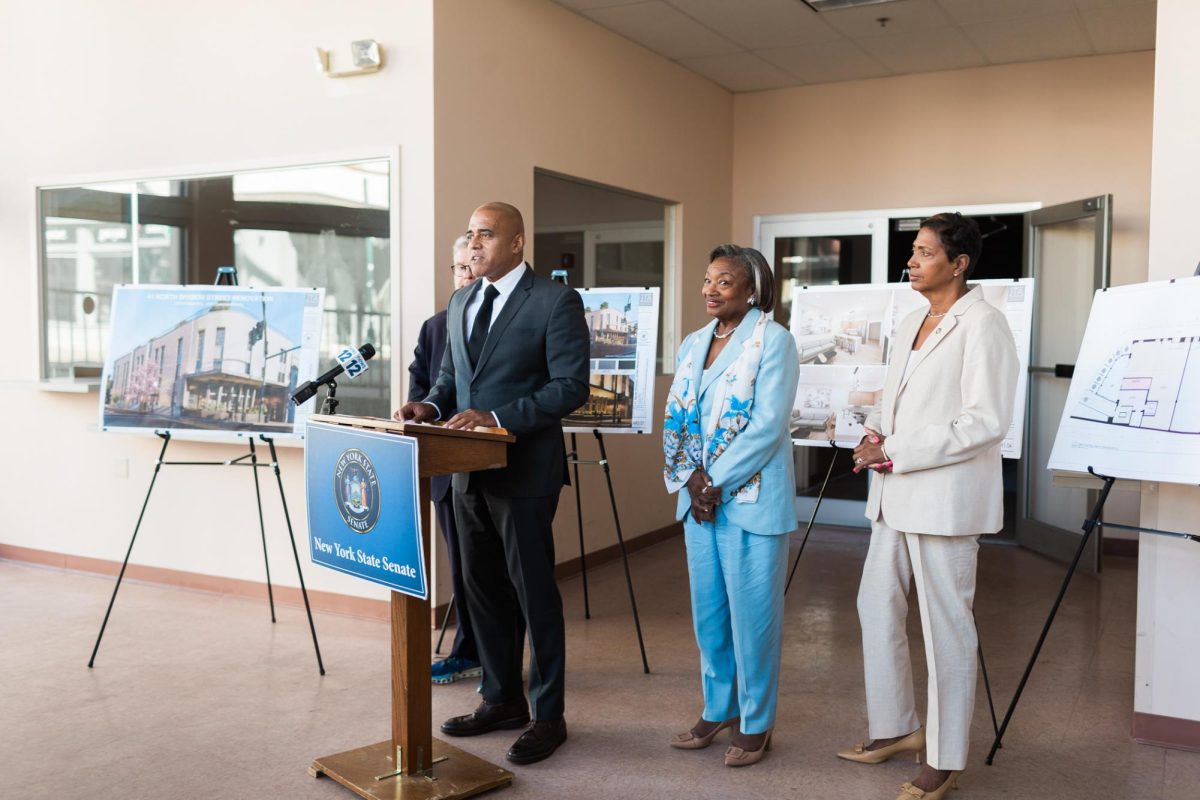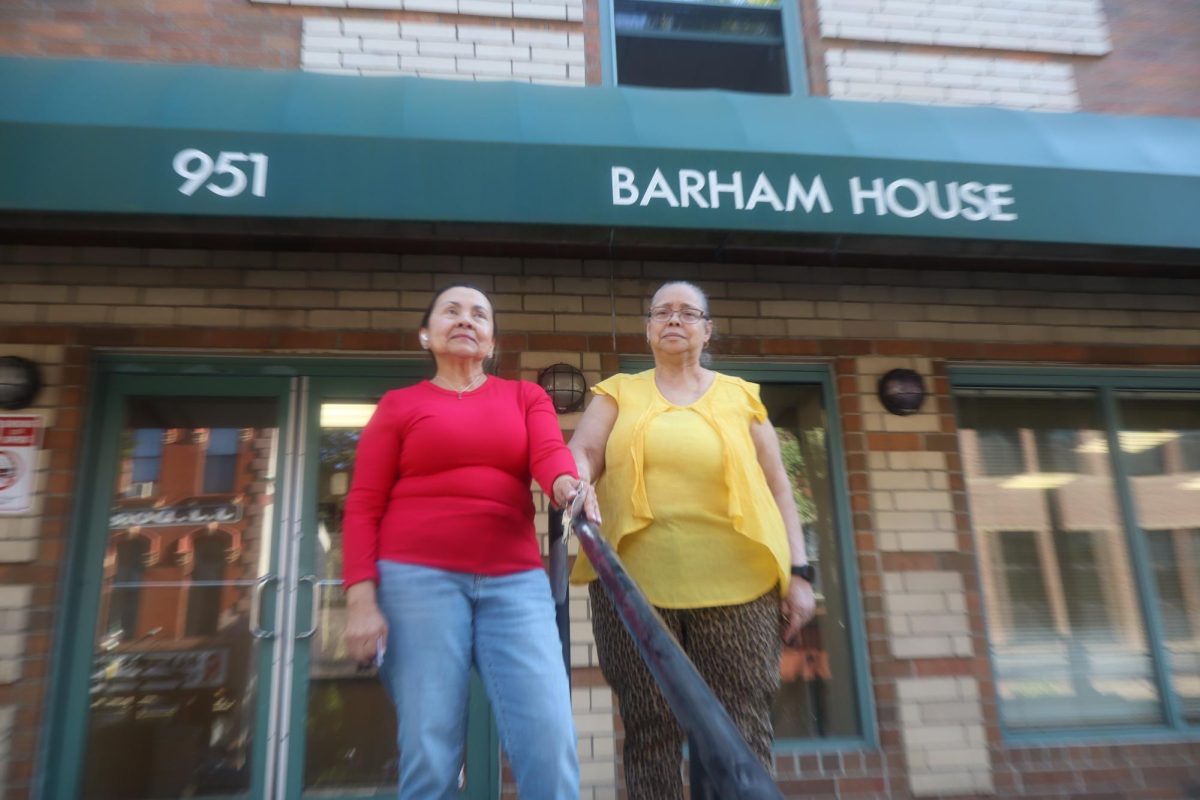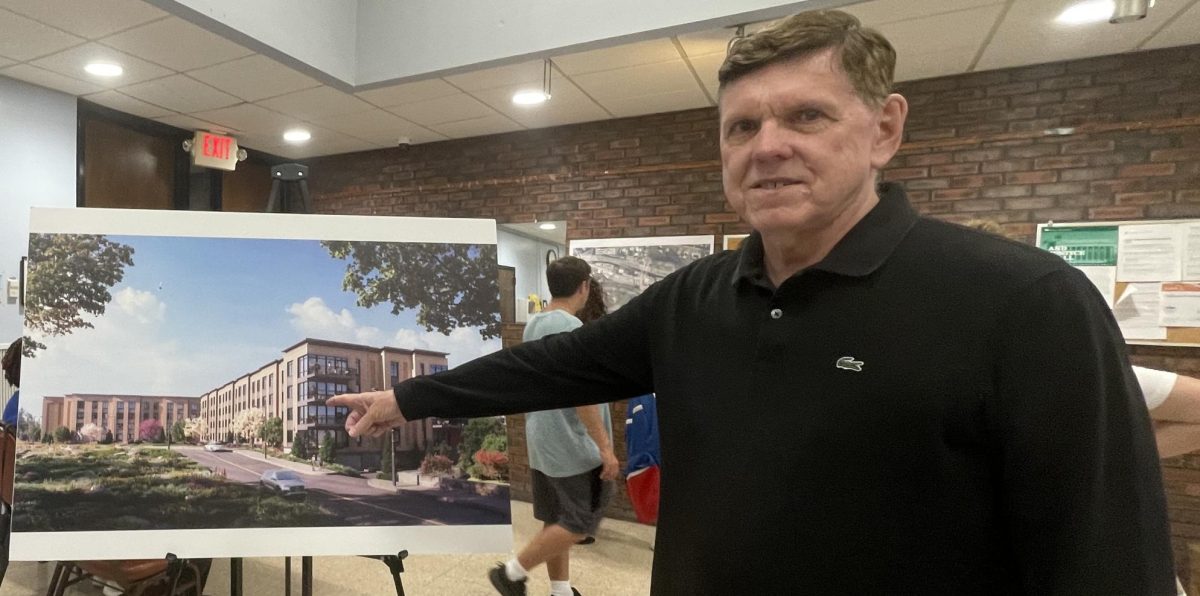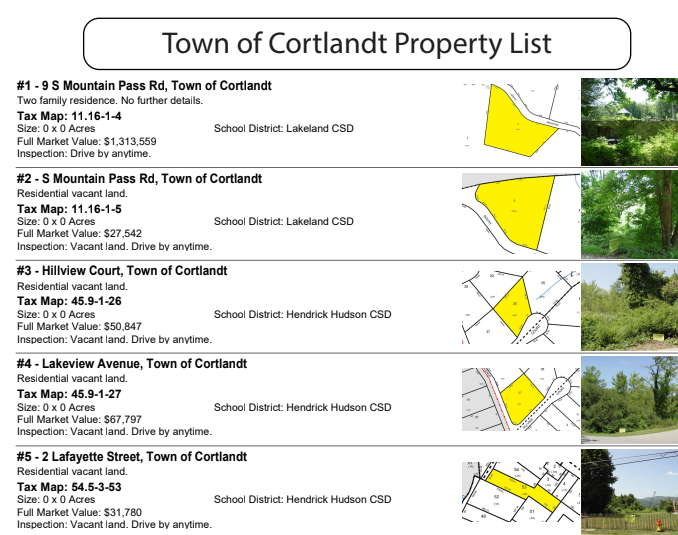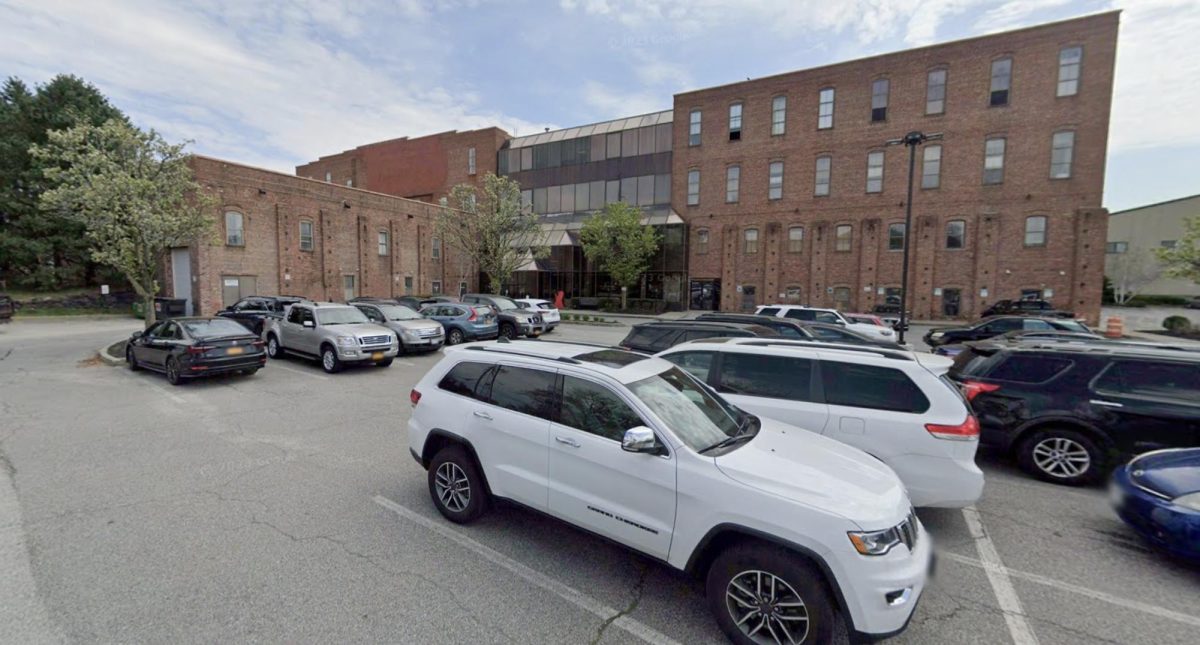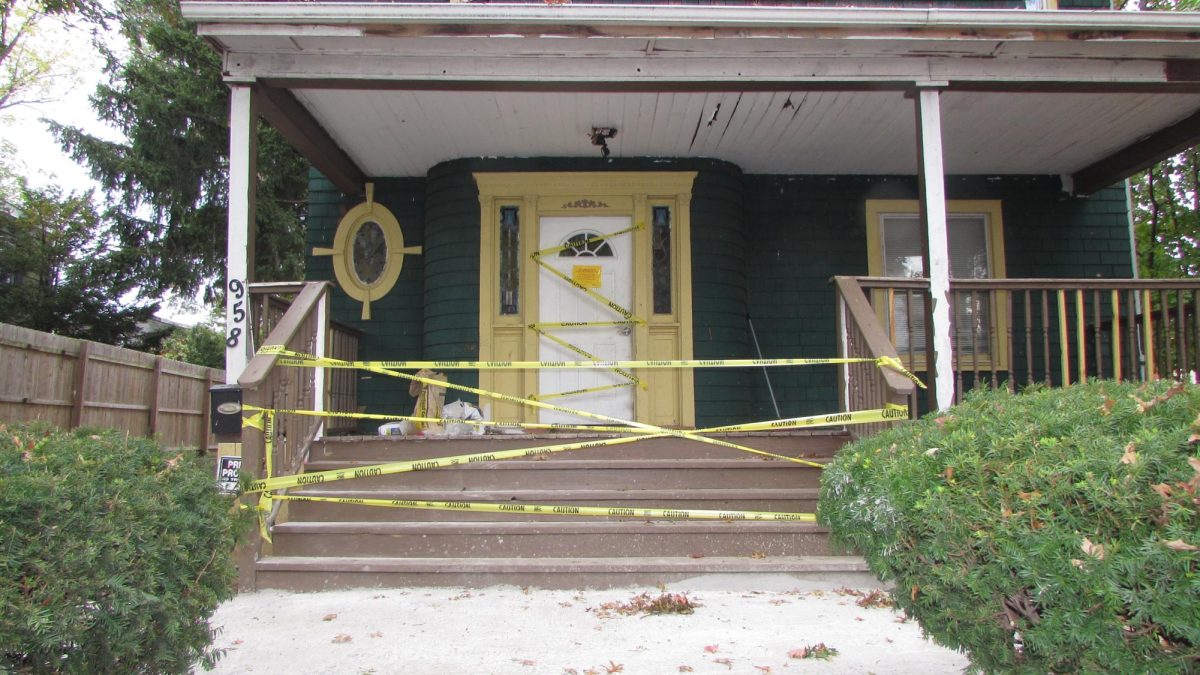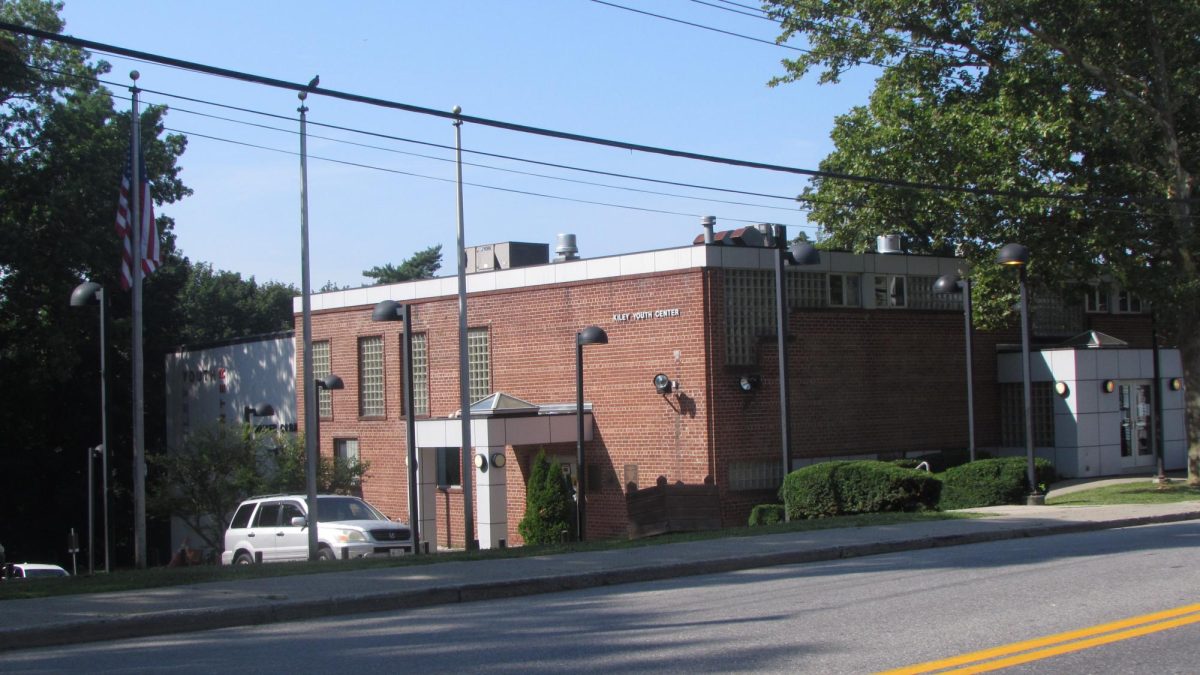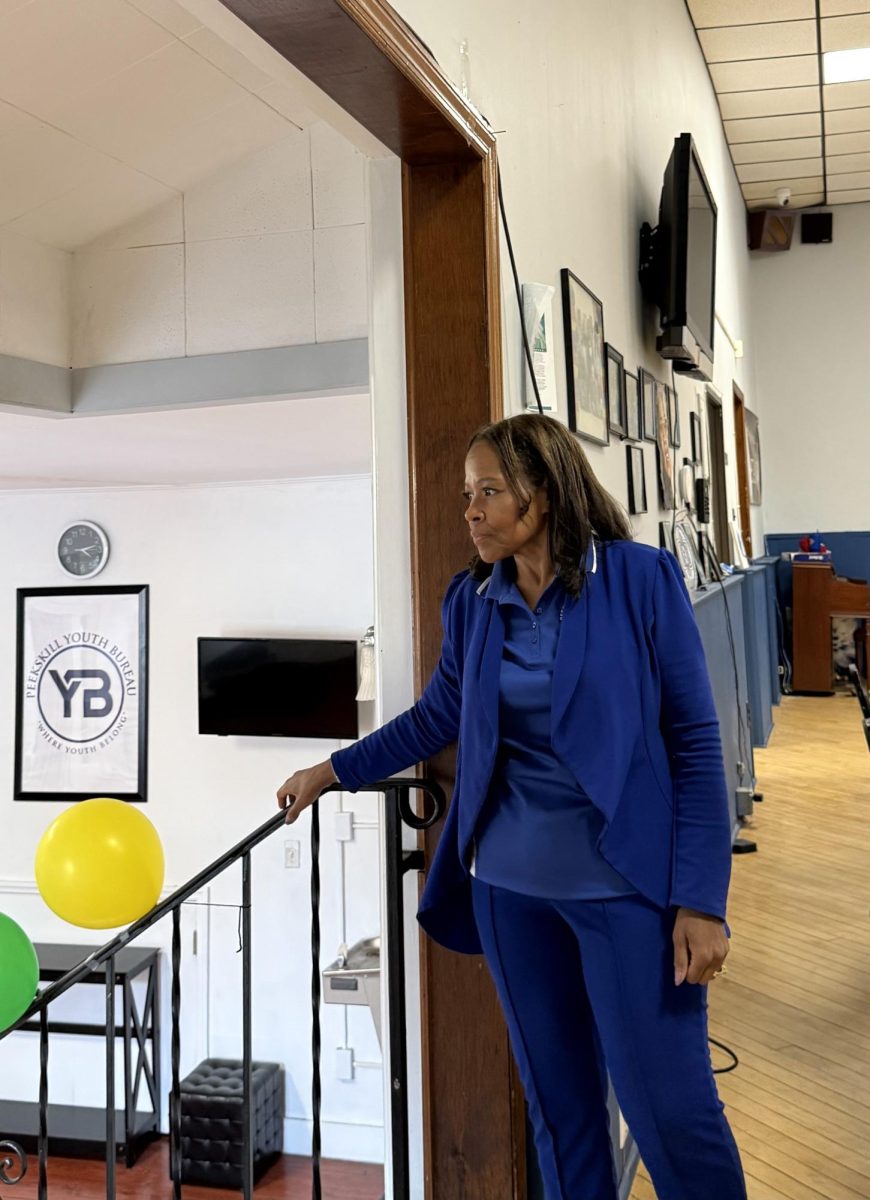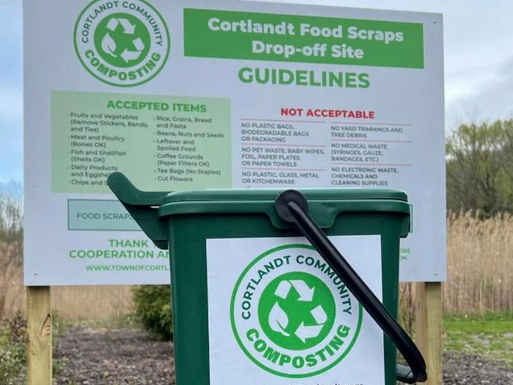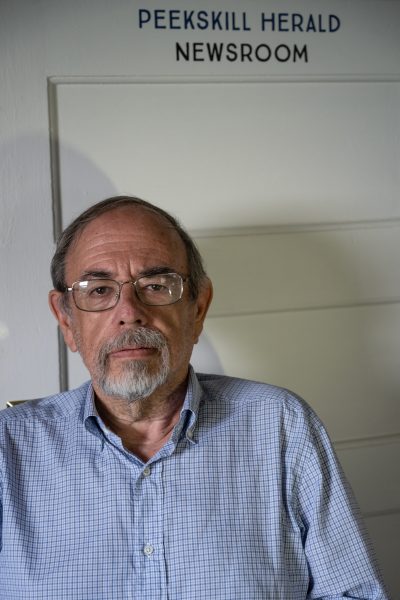Peekskill city officials faced a quandary this month dealing with a problem in need of a solution where no easy options exist.
They are not alone. Cities and towns all across the nation face the same dilemma. In fact, the United States Supreme Court held two and a half hours of contentious oral arguments Monday in Washington D.C. on the same issue – what can cities do to help homeless individuals while preserving the health and well being of the residents of the city.
In Peekskill, several people have been living in a makeshift shelter on the cliff overlooking McGregory Brook along Central Avenue since January. The site is between 645 Main and the Peekskill Garden Club, directly behind the Kiley Center.
Garbage has piled up on the hill. A mattress fell down the slope and is hanging just above the cascade of water that flows below. Bottles and other trash are accumulating at the mouth of the brook near the new 645 Main apartment building.
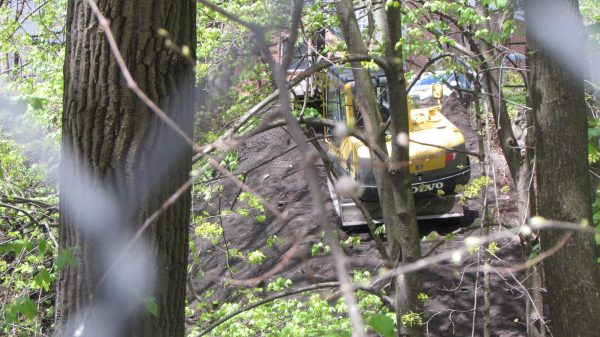
On Wednesday, April 24, after hearing from Peekskill residents about the need to act, a City of Peekskill mini-bulldozer started clearing a path from the top of the hill in the Kiley Center parking lot down toward to the encampment.
Raising the issue, and the response from the city
The challenge of finding housing and mental health services for people in need falls on the shoulders of local governments and social-service agencies that either lack the expertise or resources to meet the ever-growing need.
The situation on McGregory Brook has been discussed around town for several weeks and was raised by Gene Panczenko, a 30-year resident who had reached out to City Hall.
“I think everyone is aware that there’s a homeless encampment there and how trashed out it is,” Panczenko told the Council during the public comment portion of the April 8 meeting.
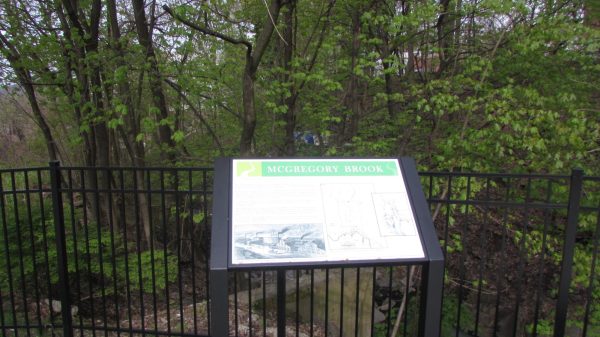
“I’ve been in contact with City Hall, and DPW and the police department, and everybody says they’re going to look into it but yet it persists. The wheels on this are turning very slowly. It’s a black eye to anyone visiting Peekskill.”
In response, Peekskill Mayor Vivien McKenzie said “It is on our fast track, but as you said it is a very sensitive situation. It’s not only working with Cynthia [Knox] of CHHOP but it’s working with the state and different agencies because someone does live there and we’re not sure if it’s a mental health issue.
“We have to tread very lightly and so yes, it is a blight but we are trying to work through it. It is definitely on our radar,” Mayor McKenzie said.
The Mayor said the site had been used by homeless people before and the area was cleaned up in 2022. Panzcenko said that three other people have returned to the site. Photos show evidence of people living there as far back as 2018.
“The issue of homelessness is very complex, and it is very sad, and no one should be living like that,” Panzcenko said. “We should do everything we can do to help these people, but not at the expense of everyone who has to deal with these consequences.”
Peekskill officials could not be reached for comment for this article.
Reaching out to find solutions
Plans were in place to have a social worker with Westchester County’s Safe Options Support Program contact the homeless people camped above McGregory Brook on Thursday, April 25.
With that initial contact, typically food and hygiene products would be provided to start to build a relationship.
Search For Change, an organization funded by the New York State Department of Mental Health, will build a rapport and try to get the encampment cleaned up, the first step in making the homeless people understand at some point they will have to leave.

The solution becomes even harder to navigate if the homeless campers refuse to accept assistance or don’t comply with rules set by agencies there to help them.
Cynthia Knox, the president of CHHOP, said long-term solutions are needed.
“For a short-term solution we would certainly be amenable to being involved,” Knox said. “I understand it’s a little unsightly but if the encampment is dismantled they’re just going to go some other place and that doesn’t solve the problem long-term.”
Peekskill is not unique in trying to find ways to deal with the dual and related issues of homelessness and a lack of affordable housing, she said
“The cost of housing is astronomically high and this is an unfortunate example of what we’re seeing across the country. I think we will be seeing more of it here locally and we have to be proactive to address it.”
A national problem calls for nationwide law
Cities all across America face the same challenges as Peekskill, some on a massive scale. The homeless crisis in Los Angeles has continued for years with no solutions in sight.
In Arizona, voters will decide a ballot initiative that would grant property tax refunds if governments don’t remove homeless encampments that cause them economic harm.
In Salem, Massachusetts an encampment of more than two dozen people has ransacked a narrow strip of city land where visitors used to stroll for nearly a year. Piles of trash and needles are strewn about, rat holes are everywhere and there is an overwhelming stench of urine and feces according to a report in the Boston Globe.
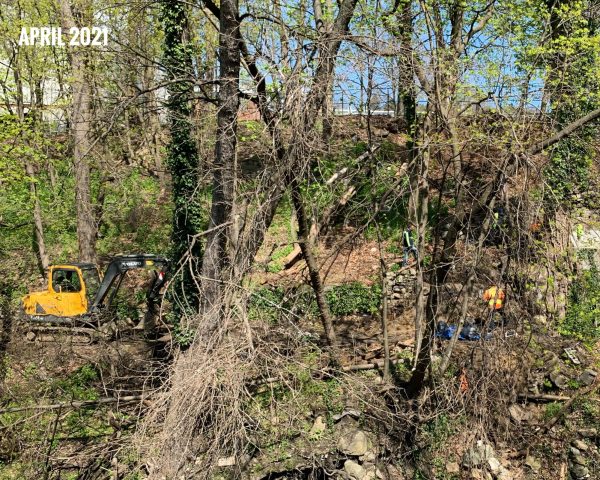
“It’s had an undeniable impact on the surrounding community, and it’s been a significant impact on city resources,” Mayor Dominick Pangallo told the Globe. “Police. Fire. Medical response. Public works for cleanup on the regular. But most importantly, it’s been bad for the people who live there.”
Salem elected officials plan to pass a new ordinance that would ban camping in the city if people are offered a place to stay.
Arguments in front of the Supreme Court on Monday involve the laws in Grant Pass, Oregon. The ordinance there bans camping or sleeping on public property or in city parks. Violators face fines of at least $295, but repeat offenders may be banned from a city park for 30 days. If a person violates that order by camping in a park, they are committing criminal trespass, punishable by up to 30 days in jail and a $1,250 fine.
Some cities condition any removal with the requirement that the homeless person is offered accommodations before they can be cited or removed.
In 2018 Grant’s Pass was sued by three homeless people claiming a constitutional right to sleep in the park. A divided three-judge panel of the U.S. Court of Appeals for the 9th Circuit upheld a ruling in their favor and Grants Pass appealed, bringing the case to the Supreme Court.
The Supreme Court ruling in the case is expected sometime this summer.


